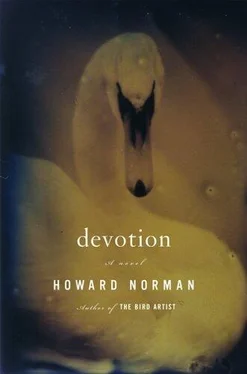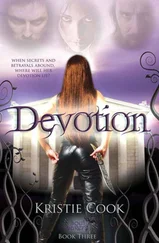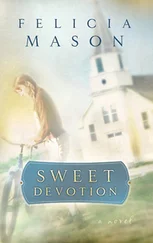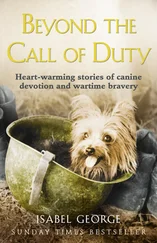“Unforgiving son-of-a-bitch,” David said. William didn’t budge; maybe he had heard, maybe not.
Should not have woken him like that, David thought, walking back to the guesthouse. In the middle of the night like that. Should not have expected William to celebrate a miraculous incident. Yet who else was there on the estate to tell? For the first time, at least with such inimitable clarity, it occurred to David that, over the past months, he’d tried to invest any small faith in the possibility not only that Maggie might forgive him — for Katrine Novak, the accident, his dissembling, any or all of it — but that William might consider him part of the family again. Family: he’d addressed this in his notebook. If only I was back to being part of the Field family —how inane that read. Yet it was true. If only William might put in a good word to Maggie for me. Yet now he was convinced, should he broach the latter subject, William would say, or write: Not till hell freezes over. He would need a second notebook soon.
Stopping a moment on the porch of the guesthouse, David thought, You fucking idiot. Or heard the echo of William saying it. It seemed a fitting epitaph: David envisioned it etched on his gravestone. And where would this gravestone be? Not in the Field family plot in Scotland or in the nearby Parrsboro cemetery. No, should he die late that night of an accumulation, slow as an intravenous drip, of poisonous self-pity, corrosive guilt, not to mention desire for his wife, most likely he would be buried in a plot adjacent to one of his parents in Vancouver. He didn’t have a Last Will and Testament designating another preference. This little impasse of morbid thought depressed him no end. He felt a crick, a queasy ache in his neck, as if he’d been whiplashed by self-imposed degradation; he felt dumb as a box of rocks, a phrase he’d overheard in the Minas Bakery. Despite being alone, leaning against the screen door’s frame, David nonetheless felt embarrassed, realizing that when he’d just now uttered You fucking idiot, he’d done so in an imitation of Peter Lorre.
In the kitchen he drank a glass of water, tried to read more of Manuscript of a Country Doctor, but his mind kept detouring. He went to the cupboard, took out a bottle of Irish whiskey, poured a shot glass, threw it back. Opened his notebook, scrawled in big sprawling letters YOU FUCKING IDIOT, then went out on the porch carrying the bottle and glass. He sat on the porch swing. Polishing off six shots in less than half an hour, he concluded that the collapse of all good things was due less to grim errors in judgment than to a self-destructive impulse natural to his character. He conjured up probably the most nefarious rationalization possible, in or out of his notebooks: The sort of thing that happened in London would’ve happened sooner or later. Therefore Maggie’s better off without me.
Out on the lawn he wandered aimlessly. He had one loafer on; the other was on the porch. It was now well toward dawn. A mile away, lobster boats were on the Bay of Fundy. The lobstermen would see the sun rising. But the pond and surrounding woods of the estate remained socked in with fog. David stumbled to the pen. Leaning against the gate, he said, “Sss-swans, swannies,” pathetic now, the alcohol stammer, and then he began calling the swans, “Here, Marcel, here Dr. H,” both characters from novels by Anatole France. For a good two or three minutes, as he repeated the names, the swans didn’t react. Finally one trundled over to investigate, got close to David and then, as if a vaudeville cane had hooked its long neck, it effected a U-turn and joined the others near the trough.
David lifted the latch, opened the gate and lay down, blocking the exit. Using outsize movements, like an escape artist loosening chains underwater, he removed his sweater, folded it into a pillow. “I promise I’ll go swimming with you, Dr. H,” he said, tucking his knees to his chest, closing his eyes. Half a dozen swans folded out from the corner like illustrated Japanese fans come alive. In a few moments David was dead to the world.
Naomi Bloor drove up in her jeep. Her bimonthly examinations were always scheduled for 7 A.M. When Naomi separated a swan out, it most often reacted in a predictable way, a kind of white explosion of wild-eyed protest, until she managed to embrace the swan, chortle “It’s okay, it’s okay,” or hum in a low monotone, then slip the leather hood over its head, at which point the swan generally stilled. She wore a catcher’s mask and chest protector, which she’d purchased in a sporting goods store in Truro. It didn’t always go smoothly. “Swans, behavior-wise,” she told David, “you have to be constantly on the alert. Seeming calm is their best trick. Because it’s right then you have to figure some nasty thought’s just started to percolate in their swan brains. Wings suddenly flare out. Bony ends of the wings, the bill, both can do real damage.” Now and then she asked David to assist. Tasks such as holding a swan’s bill closed while Naomi put in eye drops.
On another occasion, Naomi filled David in on how the swans came to be on the estate in the first place. “I get calls from all over this part of the province,” she said. “Kids shoot them. A storm caused one to collide with a radio tower, broke its wing. Things like that. Freak accidents. Years back, word got around, the Tecoskys take in wounded swans. I brought them one myself, first year I was the neighborhood vet. You might have noticed one can’t turn its neck back to preen? It was shot in the neck’s why.”
Naomi was thirty-six, with dark blond hair cut in what she called a “serious pageboy.” She liked how it framed her narrow face. She typically wore overalls and a cotton shirt and lace-up boots, a utilitarian outfit. While earning her degree at the University of California, Davis, she’d married another student; the marriage didn’t last a year. Her first postgraduate posting was with a veterinary clinic in Regina, Saskatchewan. When that ended, she went home to Truro to visit her parents. On this visit she read an ad in a Canadian veterinary journal announcing a “neighborhood practice” for sale in Parrsboro. She inquired by telephone and drove right over. She had lunch, then dinner with Dr. Alvin Frame, seventyone years old, who’d been born in Yarmouth, Nova Scotia, and had had his Parrsboro practice for forty-seven years. He was tall but stooped, with a head full of white, unruly hair, and Naomi could tell right off he didn’t suffer fools. The next morning she drove with Dr. Frame to his office, then to the Tecosky estate. On the way he said, “The caretaker’s name is William Field. William, not Bill. I told him we were visiting.” Two hours later, while they ate sandwiches at the Minas Bakery, he said, “Ail right, Dr. Bloor, I’m satisfied you won’t reverse all my years of goodwill.”
“I hope to extend your goodwill,” she said. This made Dr. Frame chuckle, possibly at his own obtuseness.
“Of course you’ll do just that. You seem a very competent young woman. You have respectable bona fides. I don’t care, really, if this sounds hokey, but my longtime clients, their confidence in me, put two daughters and a son through university. But it’s time I get out. Though I won’t give up my house in Parrsboro: my wife’s buried here. As for the practice, you just study the files, you’ll be fine. It’s mostly dogs and cats. There’s Mrs. Kelb, near Economy, who keeps toucans and parrots, in cathedral cages, you’ll see. What else? It’s rare but not unheard of the forest service will bring you a deer or coyote someone’s hit with a car. I repaired a bobcat once. Like I said, it’s all in the files.”
“I look forward to the whole thing,” Naomi said.
Читать дальше












